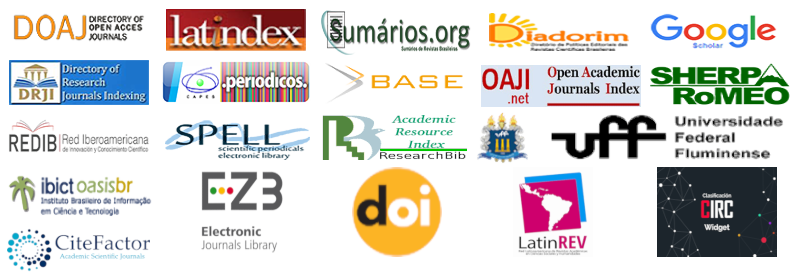Educação Empreendedora nos Cursos de Graduação da Universidade Federal da Grande Dourados (UFGD)
DOI:
https://doi.org/10.20401/rasi.7.3.478Resumo
As mudanças ocorridas nas últimas décadas nas relações do trabalho, da produção e do consumo impulsionadas principalmente pelas revoluções tecnológicas impactaram a sociedade e passaram a exigir dos indivíduos novos conhecimentos e habilidades para suprir o mercado de trabalho cada vez mais dinâmico e proativo. A introdução de disciplinas voltadas ao empreendedorismo no âmbito acadêmico procura adequar o ensino universitário a nova realidade social, servindo como uma ferramenta auxiliar de aperfeiçoamento acadêmico e profissional, aprimorando a criticidade, flexibilidade, iniciativa, capacidade técnica e de inovação, capacitando pessoas a lidar com novos desafios exigidos pelas organizações. O presente artigo tem como objetivo avaliar o desenvolvimento do ensino voltado ao empreendedorismo nos cursos de graduação da Universidade Federal da Grande Dourados (UFGD).
Downloads
Downloads
Publicado
Edição
Seção
Licença
Copyright (c) 2021 Revista de Administração, Sociedade e Inovação

Este trabalho está licenciado sob uma licença Creative Commons Attribution 4.0 International License.
A RASI, de acordo com a Lei nº 9.610, de 19.02.98 que altera, atualiza e consolida a legislação sobre direitos autorais e dá outras providências, adota as seguintes condições da Cessão de Direitos Autorais:
- A Revista de Administração Sociedade e Inovação (RASI) mantém, com a cessão dos direitos autorais, a posse dos direitos sobre os conteúdos por ela publicados;
- O autor retém seus direitos morais do conteúdo, incluindo o direito de ser identificado como autor sempre que o conteúdo for publicado;
- Apesar da atribuição dos direitos autorais o autor retém o direito de reutilizar o material em coleções futuras de seu próprio trabalho sem ônus. Os reconhecimentos da publicação anterior na RASI são as únicas exigências em tais casos;
- O autor pode fazer fotocópias do conteúdo, ou distribuí-lo por meio de correio eletrônico ou fax, desde que destinadas às suas próprias aulas e com finalidade de atender objetivos de pesquisa, sob a condição de que: (a) tais cópias não sejam revendidas e (b) referência a fonte original da publicação e o nome da RASI estejam indicados claramente em todas as cópias feitas do material.











